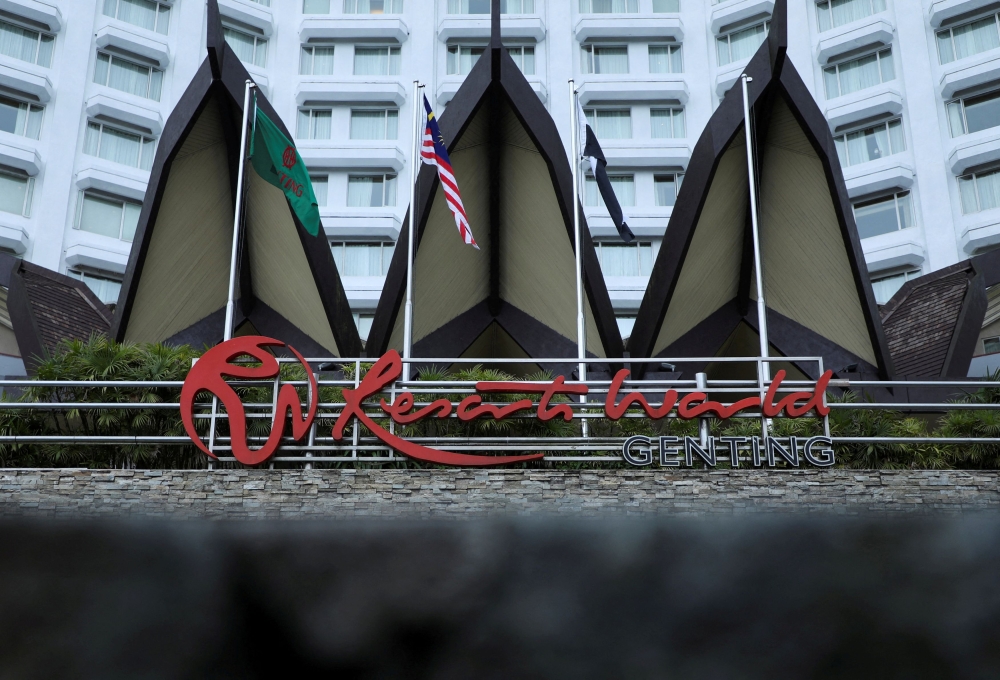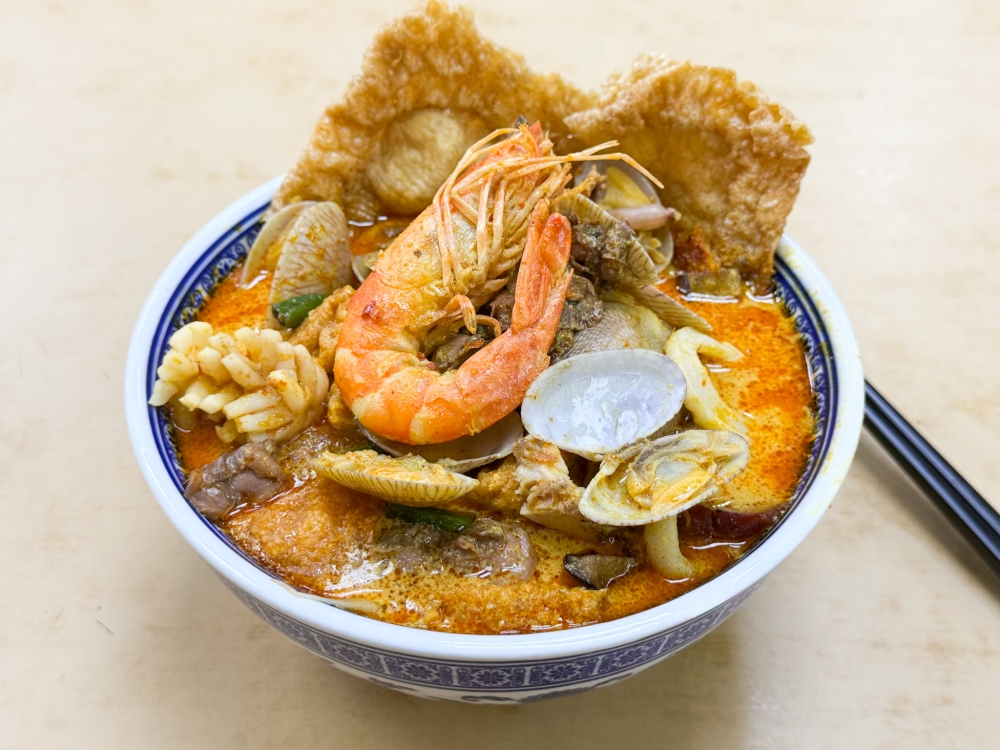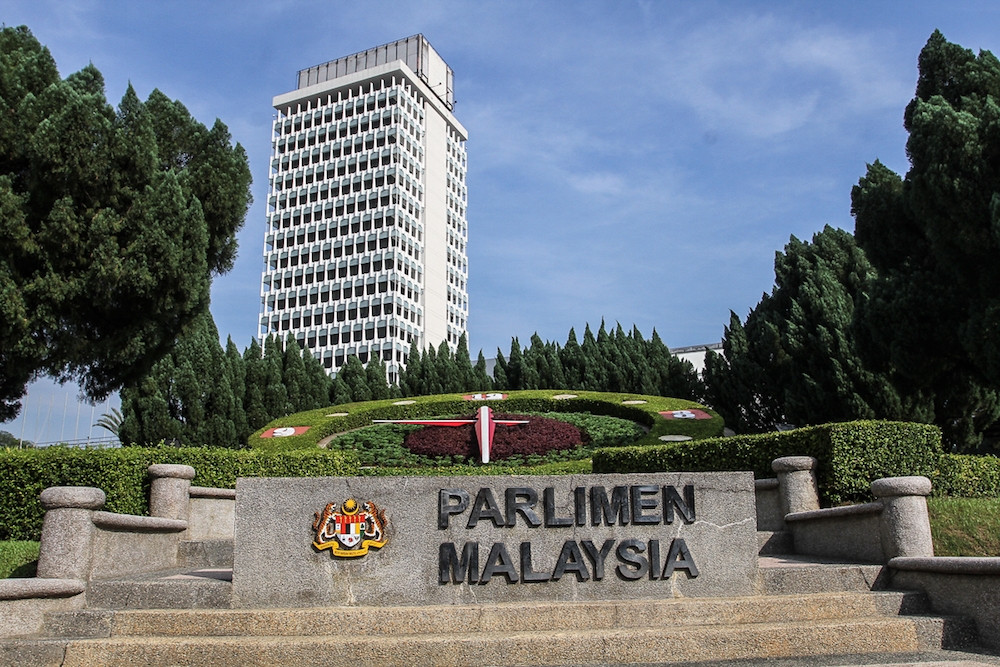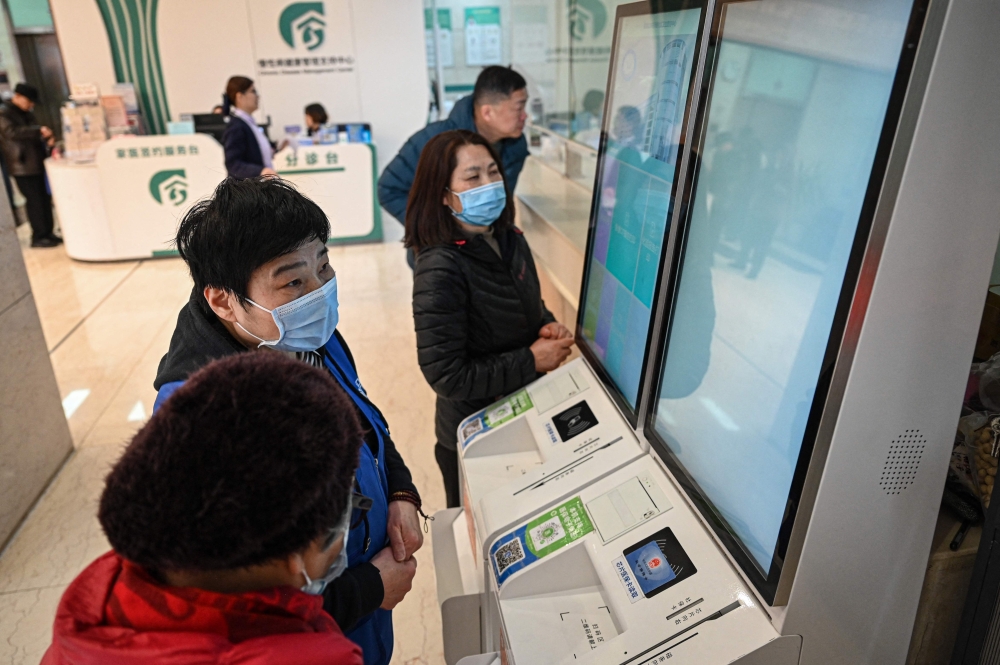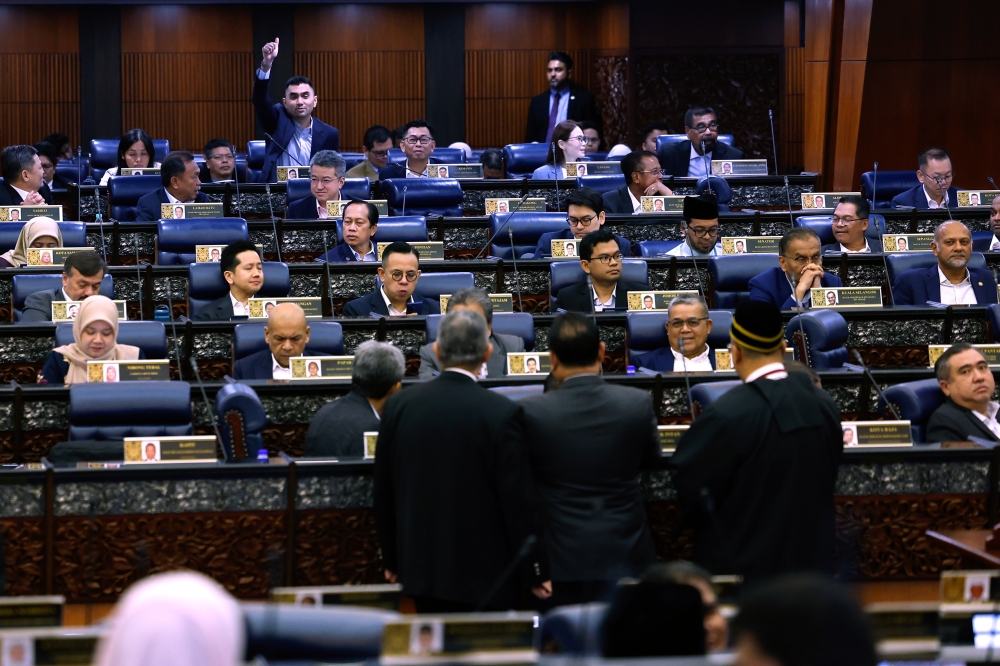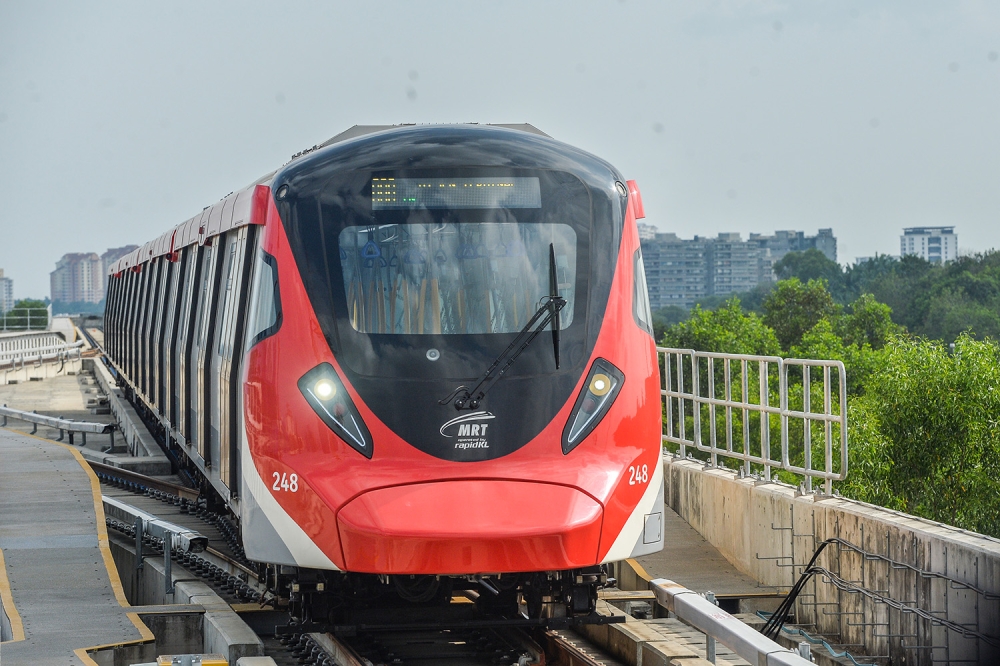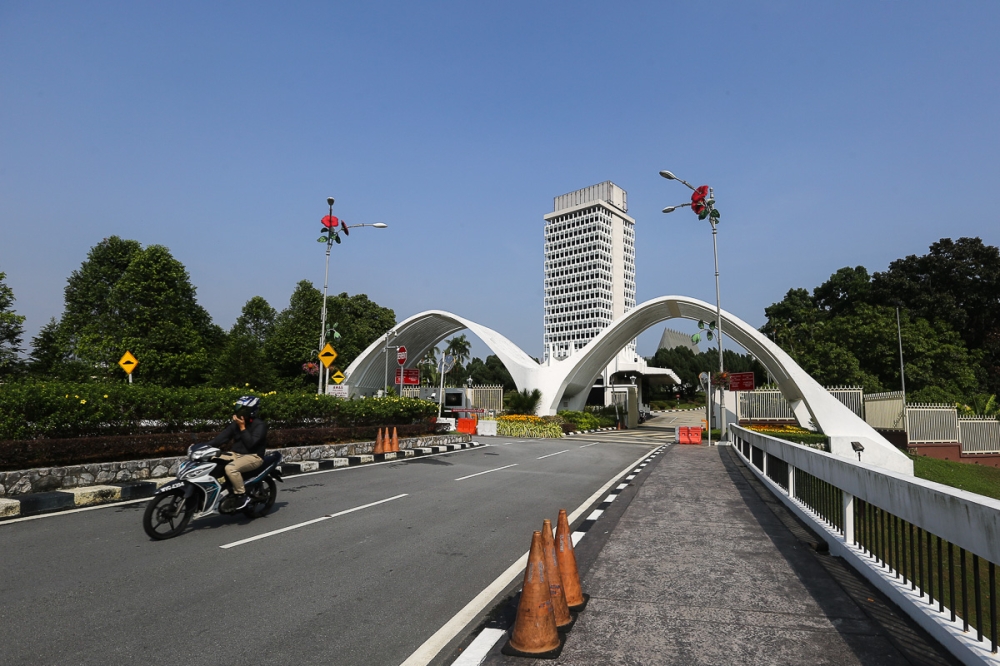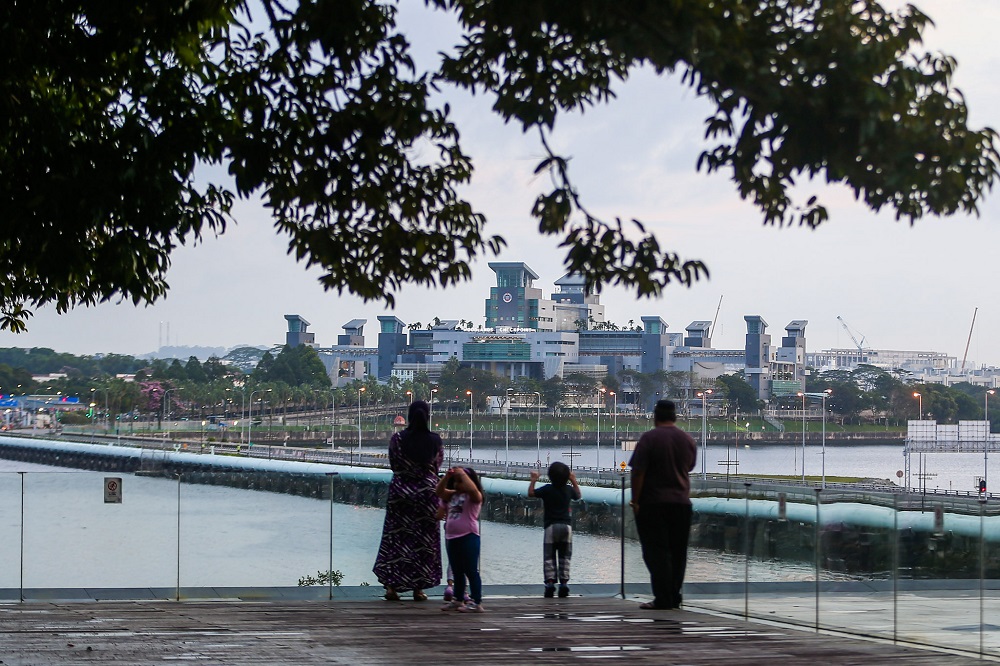JOHOR BARU, March 28 — Businesses in the city centre here welcomed the announcement of the reopening of the Malaysia-Singapore land border from April 1.
Most of the businesses there have been hit hard in the last two years, with some shutting for good, due to the lockdown and border closures in response to the Covid-19 pandemic.
Bundle shoe trader Zali Che Man said the border reopening would bring the long-dormant Johor Baru city centre back to life.
“In the past, JB was popularly known as a city that never sleeps because it operated round-the-clock and was always packed with both Johoreans and Singaporeans.
“However, the Covid-19 pandemic in March 2020 totally changed all that as businesses here suffered the most due to the border closures,” explained the 35-year-old entrepreneur when met by Malay Mail at a carpark along Jalan Dhoby here.
Zali said that he plans to look for at least two to three suitable spots to expand his bundle shoe business in the popular Pasar Karat and nearby commercial area in light of the latest announcement.
He explained that prior to the lockdown and restrictions brought about by the pandemic, his business was doing well, with many Malaysians working in Singapore as well as Singaporeans among his customers.
“With the restrictions and border closures, I was forced to relocate, and later just sold my goods online on Facebook.
“It was not easy as my profits dwindled and I had a hard time making ends meet,” said Zali.
Back on track
Food trader AB Zamri, who runs a catering business, believes that now is the time for small businesses in Johor Baru to unite in welcoming the government’s decision.
“At the same time, the state government needs to support us financially and through other means as many small-time traders here have been affected badly in the past two years.
“Funding through short-term loans and also having proper zones for small businesses to operate are needed in order to cater to the reopening of the borders,” he said to Malay Mail when contacted.
Zamri said such measures are important over the long term in order to sustain the city centre’s growth.
He said that he is also searching for several food kiosks to grow his business that has been stagnant over the past two years.
“For me, catering can’t be a mainstay and I must branch out.
“Let’s bring back the shine to JB with the traders that used to do brisk business in the city centre,” said Zamri.
Johor Baru Malay Smallholders and Light Industry Association secretary Mohammad Salezan Mohd Salleh agreed that the government’s announcement was a step in the right direction to revive Johor Baru.
He said the initial impact may not be seen immediately, and urged all parties to give the reopening some time as the improvement to the economy will only be felt in stages.
“Overall, the association welcomes the announcement for the April 1 reopening as many of our members have been hard hit by the Covid-19 pandemic,” he told Malay Mail.
Near normal
For many Singaporeans, Johor Baru is known as a shopper’s paradise due to the preferential currency exchange rate.
Besides the many shopping malls as well as hypermarkets and car wash outlets, Singaporeans are synonymous with the Bazar Karat night market in the city, the Pandan wholesale market as well as other smaller trading areas in the city.
Mohammad Salezan believes that the reopening will revive the businesses within the Pandan wholesale market that have been severely impacted by the Covid-19 restrictions and lockdowns of the past two years.
He said the aforementioned areas relied heavily on Singaporean clientele in the past.
“With the reopening, I hope that the nightlife in Johor Baru will be back to normal in the two main places of Bazar Karat and the Pandan wholesale market,” he said.
Mohammad Salezan also pointed out that in Johor Baru, a category of food traders expected to make a comeback are those selling breakfast to Malaysians working in Singapore.
“There are many small-time food traders scattered around the district and near the checkpoints that open as early as 3am to cater to Malaysian motorists who travel into Singapore daily.
“Many of them are full-time food traders and a majority have gone into other work in the past two years since the border closure.
“However, with the reopening, it will be good to see such businesses return,” said Mohammad Salezan.
Help wanted
However, despite welcoming the decision to reopen the borders next month, Birth hair salon proprietor Serence Teo told Malay Mail that for her, a new problem would be manpower.
She said that prior to the Covid-19 pandemic, she catered to many Singaporean clients.
“However, I had to let go of my staff as my business slowed down considerably due to the many restrictions and lockdowns,” said the trained hair designer who is in her 30s.
Teo said her salon is conveniently located along the Jalan Tan Hiok Nee Chinese Heritage Row and it is timely for her business to return as a feature there.
However, she said trusted and competent staff would be needed in anticipation of more customers from Singapore.
An Indian Muslim shop proprietor AR Ali Ladoo in Taman Perling agreed that the manpower shortage would be an issue, especially for food businesses in Johor Baru, once the borders reopen.
“If we have enough manpower, I don’t mind opening 24/7 like before.
“The reality is that we can only operate for a maximum of 12 hours a day due to the manpower shortage.
“This manpower shortage needs to be urgently addressed in order to fully take advantage of the reopening of the borders,” he said when met at his shop.
Long-awaited reopening
Meanwhile, Johor South SME Association adviser Teh Kee Sin said the reopening of the Malaysia-Singapore border is good news for many Johoreans.
He said traders, especially those in the city centre, will benefit from the April 1 reopening after struggling for almost two years.
“We foresee that sectors such as tourism, restaurants, services and hotels will pick up,” he said when contacted by Malay Mail.
Teh pointed out that the six million Singaporeans across the Causeway are very important to Johor’s economy due to their higher spending power and currency exchange rate.
“Malaysians who are earning in Singapore dollars will also help local businesses as they would likely return and spend in Johor Baru for added savings.
“Overall, the reopening is long awaited by many and this will in many ways improve the state of south Johor’s economy,” said Teh.
However, Teh also noted that the reopening of the border would prompt more Malaysians to seek employment in Singapore or return to jobs previously held there in pre-pandemic times.
“This in itself could create a manpower shortage for many small and medium enterprises (SME) in Johor.
“We know this will happen because those who lost their jobs during the border closure will surely want to resume working there,” he said.

